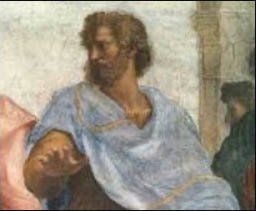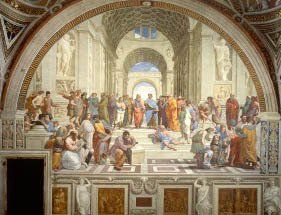TERTIUM NON DATUR
Tertium Non Datur means there is no middle term. In logic, it is known as the Law of the Excluded Middle: All propositions are either true or false.
Aristotle identified the Law of the Excluded Middle in his Metaphysics. In his ancient text, "the Philosopher" presented his commentaries on First Philosophy. "There cannot be an intermediate between contradictions," he announced in one of these commentaries. "But of one subject we must either affirm or deny any one predicate." (Book . Metaphysics. 1011b 23-24).
The Law of the Excluded Middle is the third fundamental law of reasoning. The first is the Law of Identity, which asserts for all A, A=A. The second is the Law of Non-Contradiction, which asserts not both A and —A. Taken together, these three laws provide the foundation for reasoning — all valid inferences and demonstrations of entailment rely on them.
Although these laws are the most certain of all principles, they have never been "proved". Being as Aristotle asserted
first principles, they cannot be derived from something more fundamental. Therefore, instead of attempting to prove them, Aristotle asserted that they are impossible to deny: Anyone who pretends to deny them cannot because the denier is asserting a truth or falsehood that is possible only by applying the principles of reasoning.
When we display the phrase Tertium Non Datur, we affirm to everyone that we support the Laws of Reason, and hence, Reason itself. Many do not!
Join us!



Teritum Non Datur
Tertium Non Datur means there is no middle term. In logic it is known as the Law of the Excluded Middle: All propositions are either true or false.
When we display the phrase Tertium Non Datur, we affirm to everyone that we support the Laws of Reason, and hence, Reason itself. Join us!


